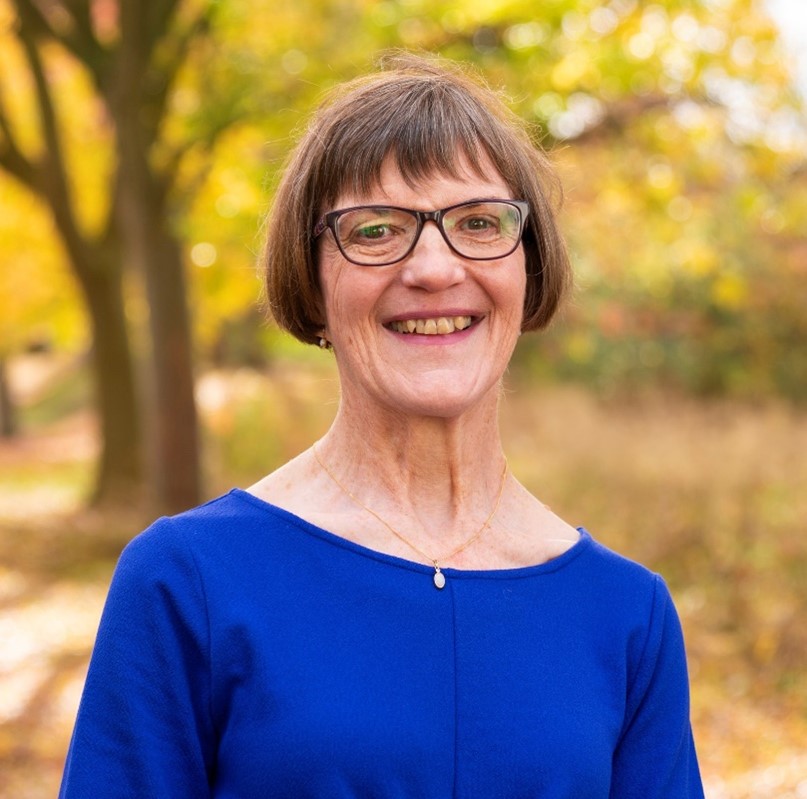Is it preferable to have, or not to have, law?

A blog post by Fred Motson and Stephanie Pywell
There can be few people over the age of four who have forgotten ‘the first lockdown’: the period from 23 March to 4 July 2020 in England (the dates varied between the four nations of the UK) when it was impossible legally to organise or attend almost any form of social gathering.
In this post, Fred Motson and Stephanie Pywell outline their empirical work exploring how people professionally involved in weddings and other couples ceremonies behaved and felt when lockdown ended.
We ran an online survey from 19 January to 19 February 2023, seeking to explore how the people who planned and conducted weddings and ceremonies in England had felt about the COVID-related constraints placed on social gatherings, and then by the complete removal of those constraints. From 4 July 2020 until 18 July 2021 - which we call ‘Period 1’ - ceremonies could take place, but with varying legal constraints consisting of a mix of law, official guidance and unofficial advice. We dubbed the constraints, which caused an enormous amount of confusion and distress to couples, ‘Law+’.
On ‘Freedom Day’, 19 July 2021, all Law+ was removed, so the only relevant laws were the ‘default’ ones such as the Health and Safety at Work Act 1974 and the Occupiers’ Liability Acts 1957 and 1984.We call the six weeks from that date ‘Period 2’. In the week of Freedom Day, 856,200 people - around 1 in 65 of the population, and more than twelve times the number that had led to the third national lockdown in January 2021 - had COVID.
We tried to contact people who were professionally involved in the five types of wedding ceremony that are legally binding in England (the law is different in all the other UK nations except Wales), those involved in weddings that are religiously binding but not legally binding in England, and the Humanist and independent celebrants involved in non-legally binding couples ceremonies. We received only 160 responses to our survey, but we had representatives of all the groups we had hoped to contact, except people involved in Jewish or religious-only weddings.
Our respondents’ roles fell into three types:
- interpreters, who had to interpret Law+ and create organisational guidance based on it
- implementers, who had to follow organisational guidance
- interpreter-implementers, who had to interpret Law+ and follow their own interpretation of it.
These roles formed two functional groups: decision-makers (interpreters and interpreter-implementers) and leaders (interpreter-implementers and implementers).
Our survey consisted mainly of Likert-scale responses (eg: ‘very happy’, ‘quite happy’, ‘neither happy nor unhappy’, ‘quite unhappy’ and ‘very unhappy’). Because our questions had differing numbers of Likert options and differing numbers of respondents, we converted all responses to a standardised score out of 10.
We asked Period 1 decision-makers whether they could find and understand Law+. At the start of the Period, their confidence that they would be able to find it was 6.3, which was higher than their actual ‘ease-of-finding’ score of 5.5. Their self-reported score for understanding the Law+ they had found was 7.9.
We asked Period 1 leaders how forcefully they had tried to implement the restrictions covered by Law+. Scores ranged from 8.1 for restricting the number of guests, down to 3.9 for lateral flow tests. In between, in descending order, were: requesting guests to wear face-coverings, imposing social distancing, limiting the duration of the ceremony, requesting guests to use hand sanitiser, and scanning a ‘track and trace’ QR code. There was no clear prioritising of black-letter law over official guidance and advice, suggesting that respondents did not know what was law and what was not.
We asked Period 2 decision-makers about the sources of guidance and recommendations that they had been aware of, and understood, when they were creating and implementing COVID-specific safety measures for ceremonies. The ‘awareness’ question answers spanned options from ‘aware of it and could find it’ down to ‘unaware of it or not applicable’. Organisational guidance scored 9.6 and the recently discontinued Law+, 7.6. All the ‘default’ law had very low scores. Understanding always scored just a little lower than awareness.
We asked Period 2 leaders which, if any, of the previous Law+ restrictions they had requested people to comply with. Predictably, all the scores were much lower than in Period 1, with ventilation scoring most highly at 5.7, followed by hand-sanitising, restricted number of guests and social distancing.
For both periods, we found that guests’ compliance with the measures that leaders had tried to implement was higher in religious settings than secular settings. Our tentative hypothesis is that this is because there is an intangible air of reverence in religious settings, where people are used to being told what to do.
We had two free-text ‘anything else?’ questions - one for each Period. The dominant theme for Period 1 was the lack of clarity of, and frequent changes to, Law+. Another popular theme was how good organisational guidance, particularly from the Church of England, had been. The dominant theme for Period 2 was compliance with the measures that leaders had requested.
One of the things we were really keen to explore was whether respondents had felt anxious because they were responsible for others’ safety. We were keen not to ‘put words into people’s mouths’, so we used the five-point ‘happy—unhappy’ Likert scale to ask how respondents had felt at the beginning and end of each Period. Happiness rose during Period 1, but during Period 2 it dropped significantly. We were surprised to find that, six weeks after ‘freedom day’, the mood was even lower than it had been at the beginning of Period 1.
It is difficult to draw firm conclusions from our work, because our sample was small. Our main finding is that, in this global crisis, people with responsibility for others’ safety preferred to be told what to do – however imperfectly and confusingly – than to be left to decide for themselves how to manage social gatherings in an unprecedented situation.

Fred Motson
Fred is a Lecturer in the Law School at The Open University. His career in Higher Education has been predominantly focused on teaching and Fred has taught across more than 20 different areas of law, at levels ranging from foundation level to postgraduate and professional courses.
Fred was heavily involved in designing and writing the new LLB Law degree which went live in 2021–2024, having written units on W111 Criminal Law, W112 Tort and Civil Justice, W211 Public Law, W212 Contract Law, W311 Trusts Law and W323 SQE: Business Law and Dispute Resolution. Fred is currently Chair of the 23J presentation of W112. He also teaches Equity, Trusts and Land Law as an associate lecturer.
After more than a decade of full-time teaching, Fred became a student once again in 2021 when he commenced studying for his PhD through The Open University. His research combines two of his main interests, sport and technology, as it is focused on applying legal theories about interpretation and judicial decision-making to the use of the Video Assistant Referee (VAR) in professional football.

Stephanie Pywell
Stephanie is Professor of Law and Social Justice in The Open University Law School. Her 42-year association with the OU includes six years as a student, five as an Associate Lecturer and 10 as a full-time academic.
Stephanie created and maintains the Law qualification guides and study websites, and all the Law undergraduate module guides. She won the OU Individual Teaching Award in 2019 for the 12 Introductory Steps to Law, which provide graduate-entry students – who begin their study of Law at Level 2 – with essential background legal knowledge after about three hours’ work.
Stephanie’s diverse research interests include delegated legislation, which was the subject of her inaugural professorial lecture on 6 December 2022. To increase public awareness of this important but poorly understood form of law, she collaborated with the Hansard Society to product a plain-English explainer that is available on the Society’s website.